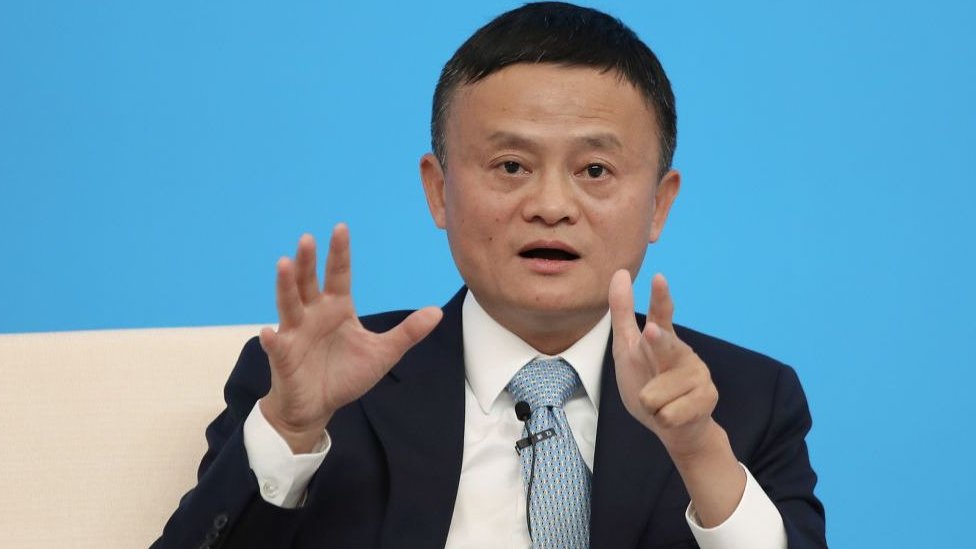
China's central bank pulled executives from Ant Group over the weekend and ordered a massive shake-up of its operations.The move comes about a month after regulators wiped out lists of companies on Hong Kong and Shanghai stock exchanges.Some view the move as revenge by the Communist Party for outspoken attacks on company founder Jack Ma.But analysts noted that reform of the financial sector is a long-standing policy target, and that other firms could fall under the cross of regulators.Ant Financial is the first taxi to be ranked according to these new requirements and an increased level of scrutiny," said Michael Norris, AgencyChina's head of research and strategy.
While discussing the intrigue in the
slotxo palace between Jack Ma and many of his rulers is horrible, it is horrible. But it doesn't care that the policy environment that slows down risk formation is clear and resolute as a priority.Ant Group is China's largest payment provider, with more than 730 million monthly active users of the Alipay digital payment service Alipay. But it's a corporate lending practice that appears to be more of a concern to regulators.Ant serves as a marketplace for loans. There must be a fee for matching the borrower with the bank which will bear the risk.
What happened to Ant?Over the weekend, central bank officials met with Ant Group executives and ordered the firm to "fix" lending, insurance and wealth management services.Pan Gongsheng, deputy governor of the Bank of China (PBOC), said regulators were interested in Ant's poor corporate governance, breaching regulatory requirements and using market size to squeeze rivals.Ant was urged to return to its roots as a payments business and to increase transaction transparency and avoid unfair competition.Pan also said that Ant should be properly authorized to operate a credit business, a holding company should be established and to ensure adequate funding.Under a draft of the rules published by People's Bank of China in November, online lenders are required to finance at least 30% of the loans they fund with banks.In other words, under the new rules, Ant Group is expected to behave a bit like traditional lenders.Hangzhou-based Ant Group said in a statement it would set up a "fix" working group and fully implement regulatory requirements.
Risky businessNorris said it appears that regulators are concerned that easy credit could mean investors borrow margin to invest in riskier stocks.This is not new in China. Easy access to credit helped fuel market turmoil in 2015 when some investors were unable to repay their margin loans.In addition, if the Ant Group is not at risk, the main incentive is to pursue as much lending as possible, taking into account the slightest impact it could have on the lending institution that actually underwrites.Regulators often prefer risk sharing between platforms and financial institutions, and financial institutions are increasingly regulating lending practices and matching criteria, ”said Norris.
"Pawn Shop"Chinese regulators moved to control Ant Group shortly before an initial public offering (IPO) in early November.The move comes after Ant Group founder and billionaire shareholder Jack Ma criticized China's state banking sector at a fintech conference in Shanghai.Ma compared Chinese banks to "pawn shops" and regretted the lack of innovation.The timing of the crackdown raised speculation that his remarks offended the Communist elite, who responded with the crackdown on the Ant Group.Almost two months later, regulators were still interested in Ma. In addition to the anti-Ant Financial movement, China's antitrust body last week said they opened an investigation into Mr Ma's e-commerce platform Alibaba.He was advised by the Chinese government to stay in Bloomberg, the report said.
No one is immuneBut even if the party's top officials expressed condolences to Mr Ma (something they are unlikely to confirm publicly), that doesn't mean that officials don't have valid concerns about the emerging financial technology sector.Ant may be the first fintech company to take over regulators. But it is unlikely to be the last.Many other big players have entered the industry, including JD.com, e-commerce rival Tencent and Alibaba.Some of Ant Group's competitors are changing how they operate ahead of the big change in rules. Online operators JD Digits, Tencent, Baidu and Lufax, for example, have all stopped selling interest-bearing deposits on their platforms after Ant was forced by regulators to do the same.I don't think anyone is immune at this stage, and of course the principle that Ant Group matches consumers and financial products is.